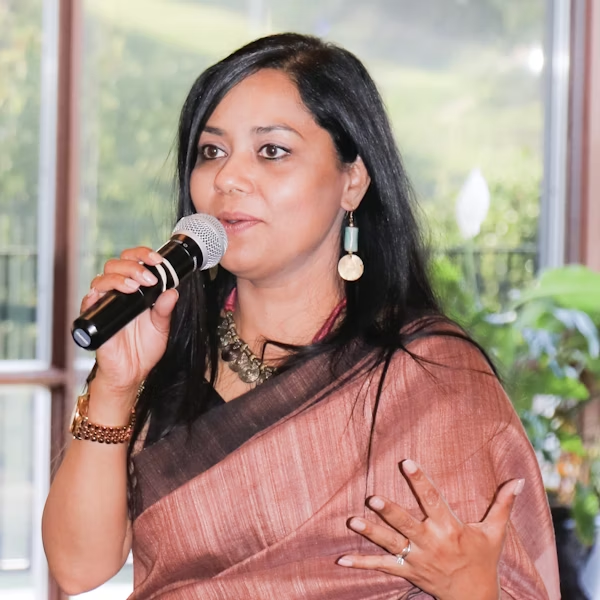Launch Your Passion into Purpose.
The GTU's Master of Arts program connects you to scholarship, community, and real-world impact. At the GTU, we recognize that each student has their own unique why. Whether you are preparing for a doctoral degree, advancing your career, pursuing your passions, or making a substantial, lasting contribution to your community, your academic journey is just that, yours. The GTU will get you to where you're meant to be.
Spring 2026 and Fall 2026 applications are now open!
Wondering if the GTU is right for you? Join us for our virtual & in-person event, GTU Visit Week, October 13-17!
With a 93% professional and academia placement rate over the last 3 graduating classes, the GTU prepares students for success.
Hybrid & Fully Remote Options
A degree that works for you, completed in just 1.5 years
Unique Concentration Areas
At the most comprehensive center for religious education in North America
Dive into your passion with purpose-driven learning. Choose from 10+ unique concentrations that allow you to engage deeply with the religious, theological, and cultural questions that matter most to you.
The Capstone is yours to design—tailored to your aspirations, your path, and your future. Whether through the Research Thesis or Practical Portfolio, the Capstone is a powerful opportunity to bring your knowledge and passion together.
The Research Thesis: For the Scholar
- Deepen your expertise and contribute original research to the field. Ideal for those pursuing a PhD or seeking to shape academic conversations.
The Practical Portfolio: For the Changemaker
- Apply your learning to real-world impact—whether in chaplaincy, nonprofit leadership, or socially engaged work. Perfect for purpose-driven professionals.
- 1.5 years of full-time study
- Part-time options available
- Transfer credits accepted
- 36 credits
- 1 required methodology core course to be taken during the student’s first semester
- 3 core courses pertaining to the student’s concentration
- 6 elective courses
- 6 capstone credits
- Capstone: Research Thesis or Practical Portfolio
Mentorship from Expert Faculty
GTU faculty are internationally recognized for their groundbreaking research, interdisciplinary approach, and commitment to fostering emerging voices. As a student, you’ll benefit from personalized mentorship that supports your academic, vocational, and spiritual growth. Whether you're preparing for doctoral study or leadership in the field, our faculty will walk alongside you every step of the way.
“It is becoming more and more rare to find a place where learning, people, the arts, spirituality, religion, academia, come together. They come together at the GTU.”
– Deena Aranoff, PhD, Director of the Richard S. Dinner Center for Jewish Studies
Consistently strong outcomes: 93% of GTU MA grads from the past three years are professionally placed.
|
Continuous Academic Scholarship |
Ministry & Chaplaincy |
Non-Profit Leadership & Administration |
|
Writing & Publishing |
Academic Leadership & Administration |
Teaching & Professorship |
|
Entrepreneurship |
Communications, Marketing, & Media |
Health Care |
|
Government |
MA Recent Graduate Highlights
- Ineda A. (MA 2015) - Chaplain, Director of Religious and Spiritual Life
- Liusamoa S. (MA 2015) - Lecturer
- Paula T. (MA 2016) - Doctoral Student
- Brandon V. (MA 2017) - Peggy Browning Fellow
- Sterling S. (MA 2017) - Director of Strategic Planning
- Zelig G. (MA 2017) - Founding Director
- Aaron G. (MA 2018) - Executive Director
- Jonathan G. (MA 2018) - Doctoral Student
- Ria A. (MA 2018) - Religious Studies Head of Department
- Thomas C. (MA 2021) - Adjunct Faculty
- Thomas L. (MA 2021) - Chaplain Missioner for Young Adults
- Susan J. (MA 2022) - Associate Director of Community and Culture
- Sok K. (MA 2022) - Director of Educational Department
- Michaela E. (MA 2022) - Minister of Faith Formation
- Austin K. (MA 2022) - Firefighter
- Henry M. (MA 2024) - Pastor
- Yusuf M. (MA 2024) - Lecturer
- Eleanor S. (MA 2024) - Social Media Manager
 Somanjana Chatterjee (MA ’24)
Somanjana Chatterjee (MA ’24)
Somanjana's thesis, "In the Womb of the Divine Feminine," offers a visionary exploration of eco-spirituality in Hinduism and Judaism. Drawing from Śakta Tantra and Eco-Kosher practices, Somanjana challenges corporate-driven ecological destruction by reimagining sustainability as a sacred practice.
 Faisal M. Azar (MA ’24)
Faisal M. Azar (MA ’24)
Faisal's research on ibādah (worship) in Islam reimagines intellectual inquiry as a sacred act of devotion and growth. His thesis, "The Pursuit of Knowledge: Rethinking Worship in Islam and Contemporary Muslim Thought," challenges us to see learning itself as an expression of faith.
In accordance with regulations determined by the Department of Education and the State of California, the GTU may only enroll online students located in authorized states. Please see the full list of authorized states for distance education.

















